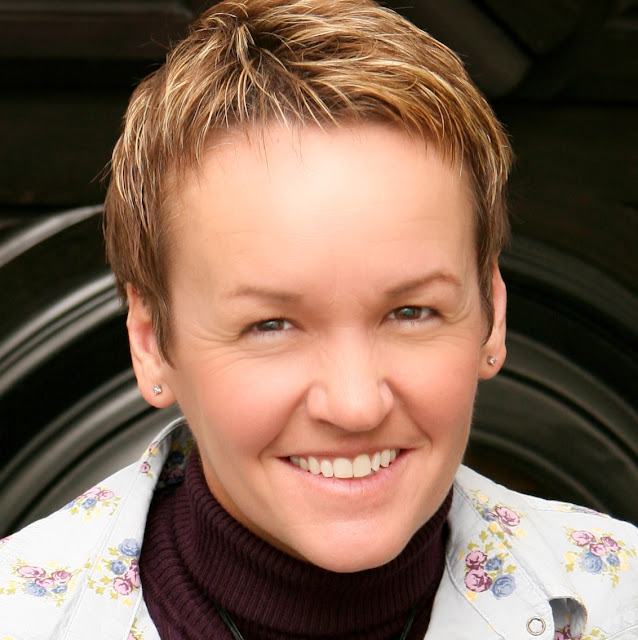Contributor Spotlight: Cyn Kitchen
 Cyn Kitchen’s story “A Man on One Knee is Considered Down” appears in Midwestern Gothic Issue 3, out now.
Cyn Kitchen’s story “A Man on One Knee is Considered Down” appears in Midwestern Gothic Issue 3, out now.
How long have you been writing?
The long answer is that I came to writing later than many. I think it was always there as I spot evidence looking back at my childhood, but my mother was fearful of literature and the words and images that lurked there, so she disallowed all but a few books in the house. Her actions seriously limited my exposure to the world of literature and effectively delayed any awareness that I was a writer, collateral carnage of sorts. My senior year of high school I had a novel on my nightstand that I’d borrowed from a friend. It was Margaret Walker’s JUBILEE. My mother discovered it while inspecting my room during the school day and went through several pages with a black marker, crossing through any word she found offensive. I never finished the book.
By the time I finally discovered I was a writer, I was in my 30s and raising a family. One might think that such a realization should be obvious, even with the issues I faced, but for me it wasn’t that simple. Multiple barriers fell into place that kept me from writing for a good long while. The flipside of that is that by the time I did start writing I had plenty to say and lots of material to say it with.
The short answer? About fifteen years.
What’s your connection to the Midwest?
Bred, born and raised in the same Illinois town as the poet Carl Sandburg. I’ve never managed to escape, and it’s not for lack of trying. I was born in the same hospital as my mother and all four of my children.
How has the Midwest influenced your writing?
The fingerprints of Midwestern characters smear everything I write. They surround me, the people I grew up with, the ones I have loved, grown to resent, and learned to love again for different reasons. Their sensibilities, syntax, willing acceptance of limitations, and periodic efforts to move beyond what life throws at them are qualities and characteristics and situations that echo my own. I didn’t know that the Midwest was a place different from others until I could get outside of it and look back in. Then I was delighted to recognize that this land-locked band of rolling landscape, chock full of grain fields, and brimming with character, was like nothing else I would ever know, and I know it like I will never know another place. I cannot separate the Midwest from me. It is my skin and my heart, and I love that I’m a part of all its flawed beauty.
Why do you believe there has never really been a regionalist push for Midwestern writing in the past like there has with the South or even the West Coast?
I wish I knew the answer to that because it’s something I lament. I have often wished to be from some other place that reveres writers and writing differently than the Midwest seems to. But the truth is that it’s the only place I know. Whatever stories come out of me are so undeniably Midwestern that I can’t fake being from some other place. I have a mini-obsession with Flannery O’Connor. Her regional influence, and her connection to the South are qualities I envy. But I know it cut both ways with O’Connor as she often railed against being categorized as a Southern writer when she just wanted to be respected as a writer. That’s why I love it that the editors of MW Gothic chose to start a magazine that honors the Midwest and carves out a new place for us. It makes me think of Toni Morrison’s quote, “I wrote my first book because I wanted to read it.” The only way to change the Midwest’s reputation as a regional member of the literary community is to change it.
How do you feel about social media to promote your writing, and do you use it?
I’m almost ambivalent. I use it, but I’m not sure how effective it is. I like it that I have a list of friends who are aware of my work and who obstensibly support it, but it seems to me that the people who could really affect my writing in terms of getting eyes to read it are the people who put my stories into books and magazines. I understand it’s all connected in various ways, but I’m not convinced that my involvement in Facebook, for instance, has any real bearing on the visibility of my work.
Favorite book?
This might be the most difficult question I’ve ever had to answer. It’s akin to asking me which of my children is my favorite. So I put the question into the context of which book I would take along if I was locked up and only allowed one. I think I would have to say the Bible. It’s the one book I was allowed to have as a child so there’s a lot of history and memory attached to it. Plus, I come from a long oral history of Bible stories which no doubt informs who I am and how I think. Besides that, the Bible has it all: sex, violence, revenge, magic, absurdity, cruelty, parable, metaphor, miracles and redemption. It’s dark, which I like, but it’s also shot through with hope.
Favorite food?
Grandma May’s roast beef with mashed potatoes & gravy.
If you could have coffee (or tea or a beer) with any literary figure, alive or dead, who would it be?
Hands down, Flannery O’Connor.
Where can we find more information about you?
www.cynkitchen.com
http://www.knox.edu/academics/faculty/kitchen-cyn.html
http://departments.knox.edu/engdept/FacultyPages/Cyn_Kitchen.html






